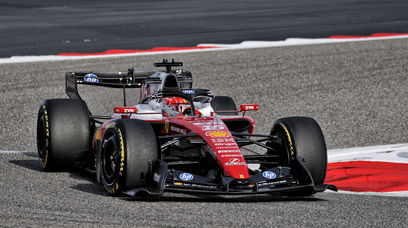The FIA has issued further clarifications on their decision to prohibit "political, religious and personal statements" without prior approval. Following the backlash of drivers and F1 personalities fearing that the competitors would be unable to speak about key issues, F1's governing body has attempted to clarify its position on 'article 12.2.1.n' and provide guidelines for drivers. The FIA clarified that article 12.2.1.n would not be changing, and this update is for driver guidance only. The FIA document has been distributed to try and clarify the rules, when they apply, examples of what is not allowed, how to seek approval for messages, and what punishments will occur. The FIA stated the reason for its renewed efforts for "neutrality", commenting: "The participants in International Competitions are part of a global community with different views, lifestyles and values. To ensure respect for this diversity, it is fundamental that motor sport remains neutral and thus separate from and free of political, religious, or personal interference."
When can drivers express their views?
The FIA have clarified that drivers can express their opinions 'outside of the scope of international competitions', citing the following examples: Social media During interviews with accredited media (such as any TV or print media interviews. During the FIA press conference, only in response to direct questions from accredited journalists. They added that article 12.2.1.n applies to: FIA press conferences (except in response to direct questions from accredited journalists). Activities on the track (Course) area or equivalent (e.g., during the Drivers Parade and the national anthem). Pre-race / post-race procedures or equivalent (e.g., the podium ceremony, in the cool down room, or at the start- and end-of-season group photos).
FIA provide examples of a breach
The guidance provided a list of examples of political, religious and personal statements, which they said can 'take the form of an image, symbol, gesture, words, or actions'. Political statements included, but were not limited to, ties to local, regional, national, or international political parties or people, governments and movements. Religious statements included: A religion, spiritual practice, or related significant figure, (with exceptions). Anything critical of or hostile to others’ religious or spiritual beliefs. The FIA clarified that "private, non-proselytising religious gestures, such as pointing to the sky or crossing oneself," aren't considered as a prohibited religious statements, and neither will 'religious clothing/ornaments'. For 'personal' statements, the FIA stated this was "any circumstance personal to the participant. Competitors must not use events as a platform to share personal statements of any kind in violation of the general principle of neutrality."
How drivers can seek approval
The FIA stated that drivers must seek written approval four weeks before an event, with requests (complete with the driver's reasons for the statement) being dealt with on a 'case-by-case' basis. Any approval would last for the duration of the event.
What the punishments are
The FIA stated that any of the possible punishments will be available to the stewards, including fines, warnings, grid penalties, exclusions and suspensions. No examples related to offences and punishments were provided.
Most read







